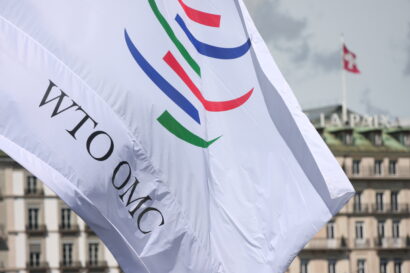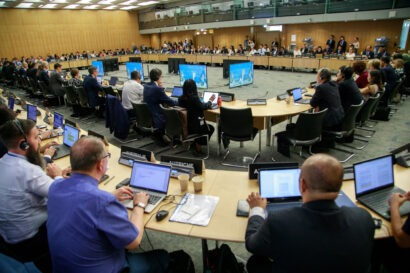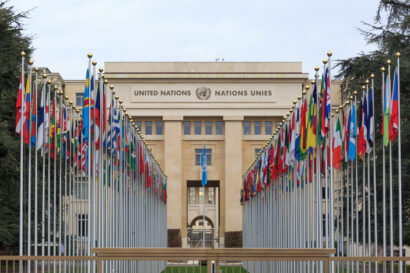Yes, it sounds very tedious. Accounting does not interest most people concerned with development. We may agree it is necessary, but we do not think it is very interesting. And most of us do not understand it. How many of us can really read a balance sheet, or understand an income statement?
The accounts of transnational corporations working in developing countries are complex beyond our imaginations. But these accounts really do matter.
What can we learn from the tax returns of transnational corporations?
One result of economic globalisation is that tax authorities in developing countries have to manage enormously complex tax returns from companies that, with increasing frequency, are trading, investing, and transferring money across international boundaries. Those companies can often afford much more professional expertise than the local tax authorities. And we know that transnational corporations use various legal and accounting devices to shift significant profits out of many low income countries.
A great deal of tax money does not stay where it is most needed and where it really belongs.
This would be less of a problem if companies were faced with a choice between paying, say, a 35% tax on profits in Bolivia and a 25% rate in Belgium. But their actual alternative to 35% is often to pay somewhere between 0% and 5% in one of several dozen tax havens worldwide.
Which corporate finance director could resist shifting money around the world when faced with that kind of choice? Not to do so could be seen as failing in responsibilities to shareholders.
Shifting money around the world is made easier because transnational companies are rarely required to report in detail on their activities, incomes, and profits within the individual countries in which they operate. Their main legal requirement is to provide consolidated financial statements for the whole business group. A group may comprise dozens–or even hundreds–of separate companies operating in dozens of countries.
It would be really helpful to tax authorities worldwide, but especially in developing countries, if transnational corporations were required to provide more detail about their operations and profits in each country in which they operate. But it is hard enough to make a convincing, appealing, popular political case for reform of any dimension of accounting.
How can we generate political interest in tax accounting?
Richard Murphy, an international tax activist, made a major breakthrough in inventing and then popularising the term “country-by-country reporting“. This has been a major policy issue for international tax advocacy organisations for some years now and has been seriously debated at the highest international policy levels.
But the demand for country-by-country reporting has not swept all before it. It has met considerable resistance.
Arguments against country-by-country reporting
The private sector, of course, generally opposes a measure that is liable to reduce its scope to avoid taxes. And some of the arguments used can sound quite persuasive:
- the cost to companies of obtaining the required information might be very high.
- it is very unclear what the activists are asking for. Country-by-country reporting is a neat phrase, but could in practice be interpreted in many different ways.
- the objectives are not clear. Country-by-country reporting is alleged to be a policy solution in search of a problem. Is the objective to give more information to tax authorities? Or is it to empower civil society to hold companies to account? Is that appropriate – should private companies be required to give that information just to make life easier for civil society watchdogs?
- tax information is confidential.
These objections seem to have prevailed so far. Attempts, particularly at the OECD, to get a substantial consensus over this issue have come to nothing.
The social responsibility agenda is shifting the debate
There are however signs that the terms of the debate are changing. The argument that companies need do no more than comply with the law when filing tax returns is now increasingly challenged by the notion that companies do have some kind of social responsibility to pay the “right” amount of taxes.
For the larger and more publicly prominent transnational corporations, this has now become a matter of reputation. Just as companies do not want to be associated with employing child labour or despoiling the environment, some now want a reputation for paying their fair share of taxes.
An acquaintance who works for one of the “Big Four” international accounting firms recently remarked to me that “when I used to work in the private sector, it was a simple matter of shifting nominal profits around to minimise the tax burden. Now, quite a few companies come to us with concerns about their taxpaying reputation”.
It is hard to predict what will happen next. There are already a number of international arrangements, starting with the Extractive Industries Transparency Initiative in 2002 to encourage or oblige companies working in the natural resource sector to be more transparent about their payments to governments.
The natural resource sector, and especially mining, is where many of the cases of very large-scale international tax evasion are located so it’s a good place to start. Companies working in this sector can expect to come under tighter and more powerful regulation.
Following this lead, within a decade, it is possible we will think it quite normal, and essential, that transnational companies routinely tell us much more about where in the world they are generating their incomes and profits. Now that is something to get excited about.


